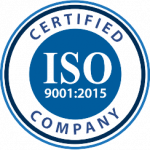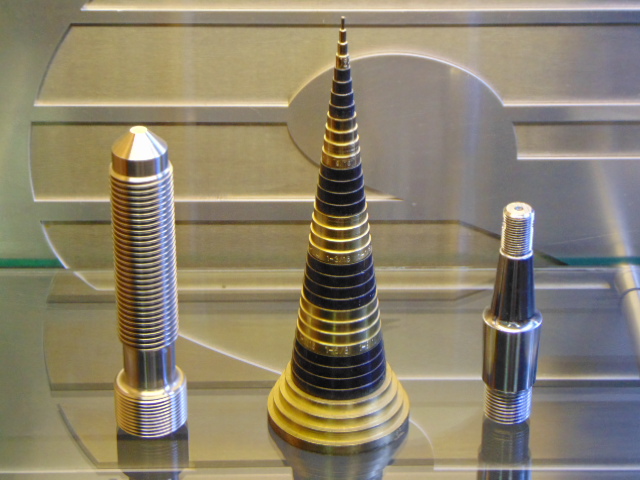There are multiple different manufacturing processes out there, each with their own advantages, and applications. One of the most common of these is CNC Turning. Like CNC Milling, this process is computer-guided, producing complex parts with high accuracy. However, CNC turning lathes and centers manufacture very different types of parts than CNC milling machines.
What is CNC Turning?
CNC Turning is a manufacturing process in which the bar stock is rotated while a tool removes material from it to create the desired shape. The speed of the stock’s rotation is adjusted according to the computer for more accurate or deeper cuts. CNC Turning machines commonly conduct operations like boring, drilling, facing, knurling, grooving, parting, reaming, taper and turning. These machines are more suited for parts that are cylindrical or symmetrical, and for parts that are smaller and more specialized, like bolts and screws.
CNC Milling vs. CNC Turning: Which is best for you?
While CNC Milling and Turning are both similar, computer-guided processes, they have very different applications and are used to manufacture different parts. If you are unsure which is best for you, then the following comparison may help.
Milling
- A tool rotates against stock material to make multiple, discontinuous cuts
- Utilizes a multi-point tool to machine flat or irregular surfaces, creating parts that are flat, square or larger
- Best for more complex, irregular shapes
Turning
- Bar stock, usually cylindrical in shape, rotates while a tool uses the created friction to continuously remove material
- Utilizes a single-point tool to machine cylindrical bar stock into parts that are circular or tubular, and parts that tend to be smaller
- Best for smaller, circular parts
Advantages of CNC Turning
CNC Turning machines have a wide variety of advantages. Because they are computer-guided, they produce highly accurate cuts with great consistency. These types of machines also tend to have a higher production efficiency and production speed.
With this increased speed, manufacturing large volumes of smaller parts is much quicker, and the computer guidance increases not only the accuracy of the parts, but their consistency. This automation reduces costs, waste, and production, making these machines a valuable asset to many precision CNC machining shops.
Swiss Turning Machines: What sets them apart?
There are also specialized CNC turning machines known as Swiss Turning machines. Traditional lathes hold the bar stock in place while it rotates. Swiss turning centers slide the stock axially through a guide bush while it rotates, which allows them to make more intricate cuts.
Swiss Turning machines do much greater precision work than traditional CNC turning machines, and are best suited for very small, delicate parts. They can manufacture these tiny parts with extremely tight tolerances, deeper cuts, and thinner walls. Some Swiss turning machines can even manufacture parts up to a 20:1 length to width ratio.
Swiss turning machines also often produce ready-to-ship parts because of the way they cut the bar stock. This in turn reduces manufacturing time and lowers costs. Some of the more common parts that are often machined are implants, shafts, contact pins, housings, inserts, and sockets, but these machines have applications in many different industries, as you’ll soon see.
Applications
CNC Turning and Swiss Turning machines have applications in a wide variety of industries such as Aerospace, Automotive, Medical, prototyping, telecommunications, and electronics, to name a few. They are often used to produce different types of spacers, pulleys, shafts, pins, bolts, and more out of various types of materials. Their many capabilities, as well as their ability to produce precise, effective products consistently, makes them incredibly useful and cost-effective tools.
Small Parts Machining maintains a full complement of CNC Turning and Milling equipment, and a Swiss turning lathe to serve a wide range of industries. If you have a part that requires CNC Turning services, or if you would like to learn more about the other capabilities, contact Small Parts Machining at inquiry.small@made-parts.com.



